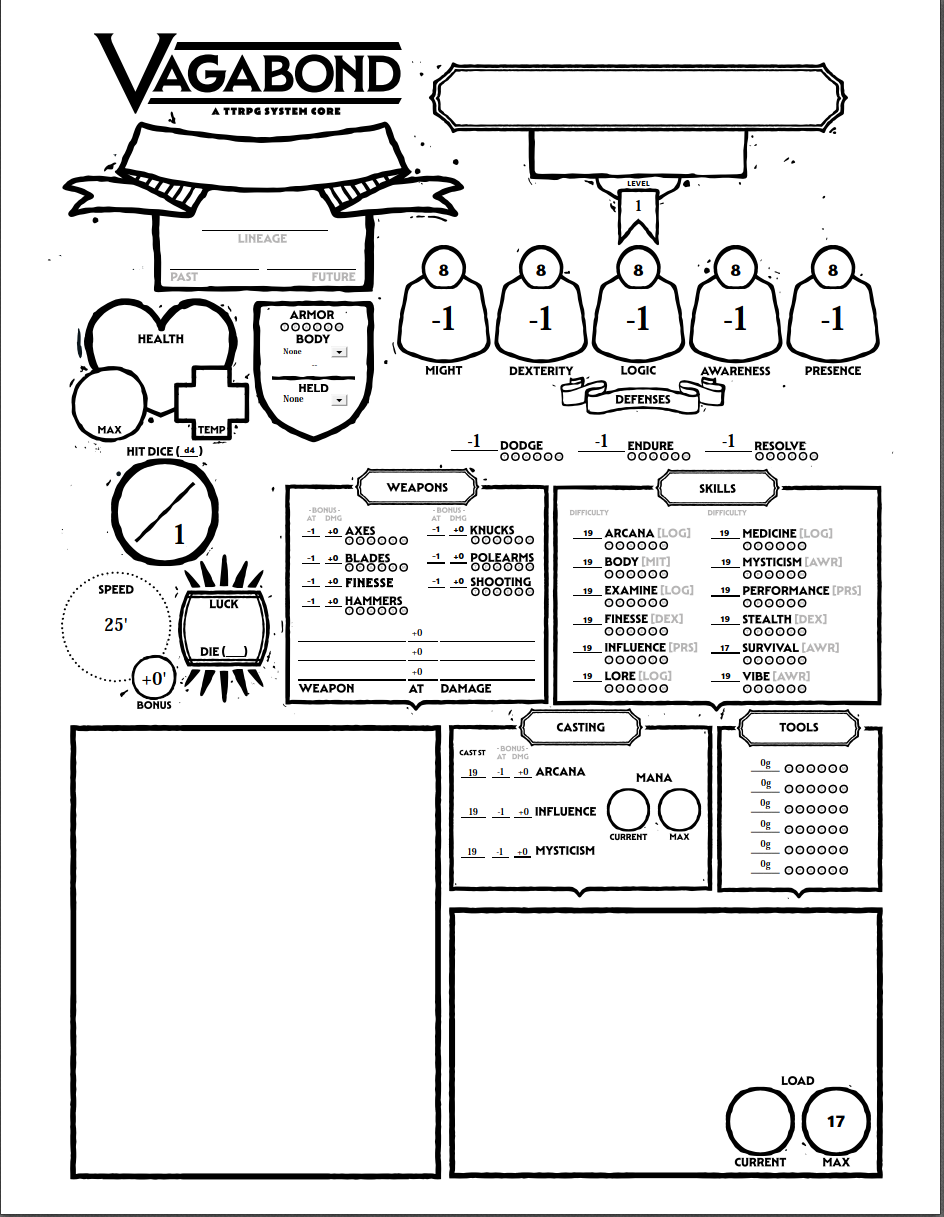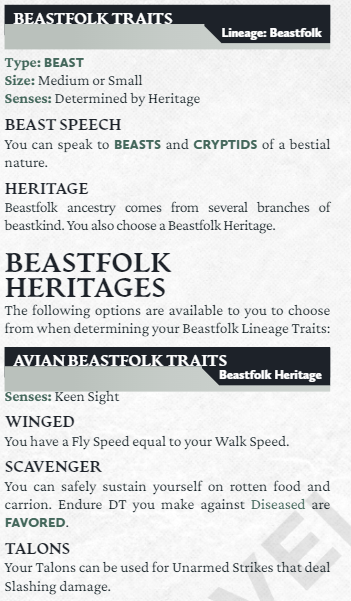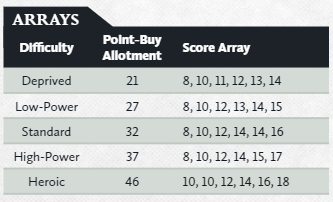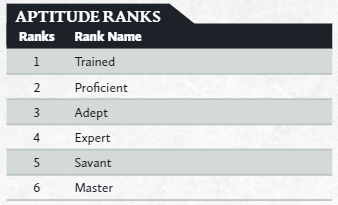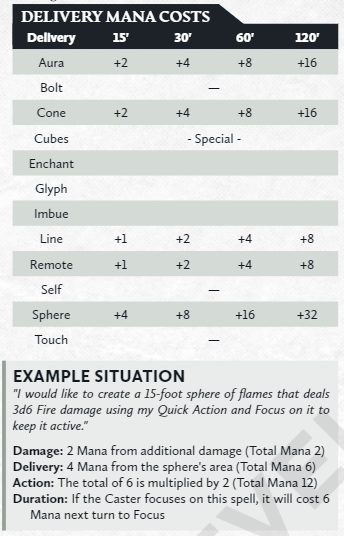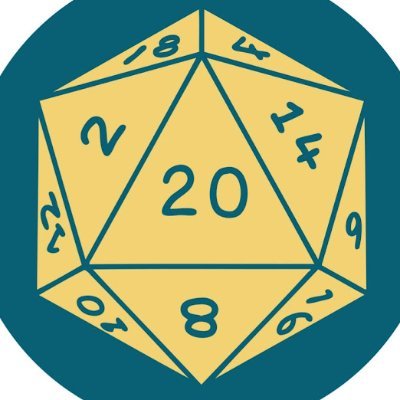
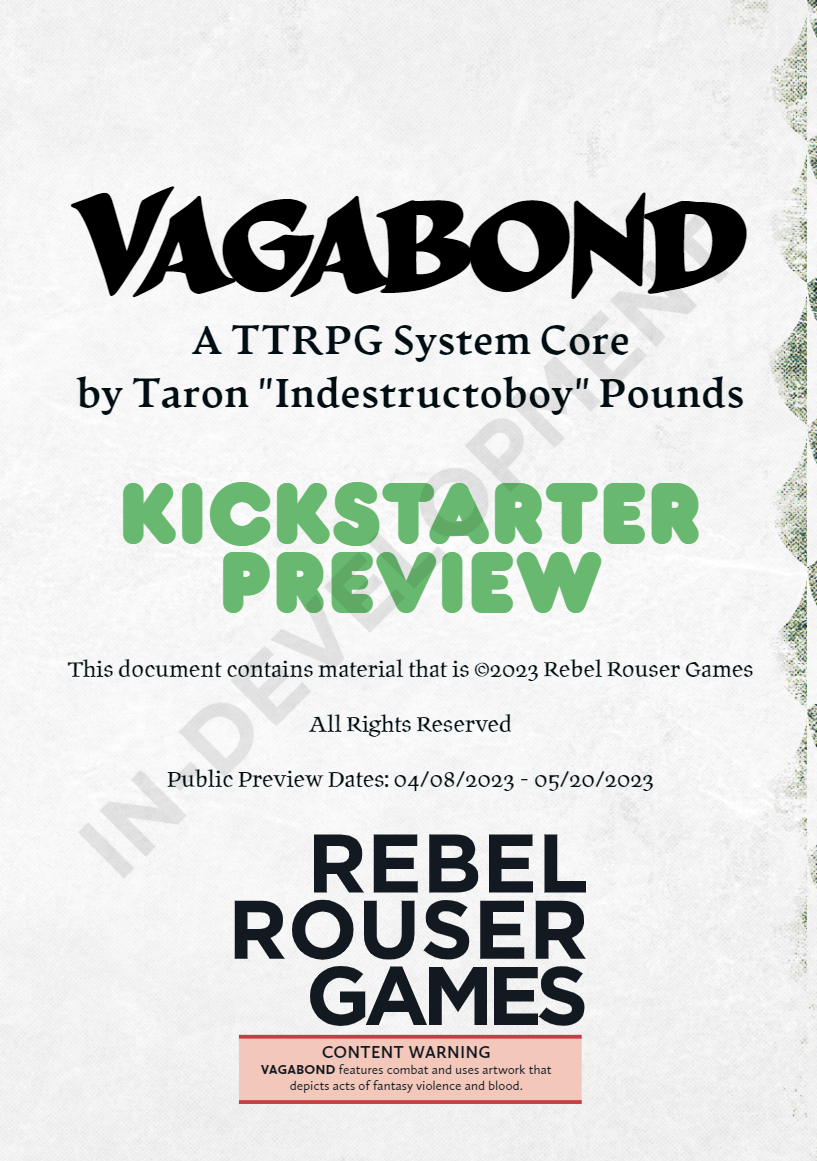

Overview
This game definitely has some interesting ideas. Its tactical, runs pretty quickly, and has some built in solo play that allows you to test out scenarios as a GM. It has two different mechanics for resolution (action vs skill)
- Tactical
- The game utilizes group turns for flexibility and interesting decisions and quick actions that can be used at any time to keep players engaged even when it isn't their side's turn.
- Solo
- It has designed the mechanics to allow for solo play. This also means that GMs should have an easier time with encounter design and tactics
- Fast
- Overall I felt my gaming experience with a large group was quick, and easy to keep moving. Casters learning how to adapt spells will be the only initial sticking point.

Resolution Mechanic
This is a d20 system with a roll over mechanic. You want to roll and equal or be above your target number. There are three types of tests you will be primarily making:
- Accuracy Tests
- Defensive Tests
- Skills Tests (made against the hero's capacity with their skill, not against a target number)The GM does not make any rolls. Players.
Character Design
Ancestry/Race/Kin
Beastfolk Centaur Dragonkin Dwarf Elf Fiend Gnoum Goblin Golem Goop Gremlin Halfling Harpy Human Kindled Kobold Mimic Minotaur Myceliae Orc Pixie SatyrIn this game the word used is Lineage, and their are a LOT of them. If you count all the sub-lineage there are 36 options available.
A lineage is going to dictate your size, will grant something like an ability, talent, aptitude level, bonus to movement, etc.
Lots of fun variation here, from Beastfolk to Mimic. You get some interesting variety
Attributes
Awareness Dexterity Logic Might PresenceThere are 5 attributes. The designer has been paring things down and trying to stream line the entire process. Key notes:
- Awareness is for ranged attacks
This allows you to not have overpowered attributes like dexterity can be in 5E
Default method for assigning attributes is a point buy system. There are multiple options, and even options that let you know how difficult of a game (or tone of a game) you are going to have. You can opt for weaker point buys to have a more Grimdark / OSR feel for instance.
Skills
Aptitudes are a part of everything. In this game you have an aptitude with weapons, skills, magic schools, armor, types of defenses, etc. Each rank in aptitude is another (+) that you are going to be adding to your chances of success (which on a d20 means 5% increase). Also, your aptitude rank determines what you have access to; weapons you can use, armor, etc.
Skill Tests might take some getting used to, but the character sheets automate all calculations, which means you don't really need to understand how you determine your Skill Difficulty & Skill Capacity.
The long and short is that if you take 20 - attribute modifier associated with skill - aptitude level in that skill you will have a number. This number is what you need to roll over when attempting that skill.
Wizard with 16 logic (modifier +3) who is trained in arcana (+2) will always need to roll a 15+ when attempting arcana checks.
Background
In Vagabond your background is known as your Past. This is a really clever nomenclature to utilize. Your Past will increase your aptitude rank by 1 in two different skills, or 1 skill and 1 tool. Pasts are associated with some form of wealth and starting equipment. They also may grant some aptitudes in things like armor, weapons, or specific defensive tests or skill tests.
The term Past fits nicely with the term Future, which is a part of the advancement/leveling process.
Class / Profession
Alchemist Barbarian Bard Cleric Dancer Druid Exemplar Fighter Gunslinger Hunter Pugilist Rogue Sorcerer Vanguard Witch WizardThere are a lot of fun Classes to use in this game, and it sounds like there are more to come. Your class will determine a lot of things for you:
- Starting Hit points
- Type and number of hit dice
- type of luck die
- Aptitudes you have in weapons, armor, defenses, skills, tools
- Starting Equipment
There is also a leveling chart. Each class has 10 levels, and this shows what knew features you will be getting at each level. This is similar to 5e if you are familiar with that system. But you get a feature at every level.
There are also sub-class options that you can take which are referred to with thematic names; practices, instincts, etc. These offer more variety of play, and new features to give you more flavor
In addition to this there is a section on playstyle which is nice to see. It not only tells you how to play thematically but also mechanically. It has suggestions on the types of Actions you might take on your turn, and what position or zone in combat you might want to be in: Frontline, Midline, Backline
Abilities/Power/Feats
Talents are similar to Feats in 5e. They are really cool powers or abilities that usually enhance or break the rules in some fun sort of way. They give you more flavor, and more specific playstyles. For instance this is how you might be able to be a Duelist, Sharpshooter, etc.
This is also the only area i've seen where you can get a bit of multiclassing flavor. A melee class could take the Arcane Initiate talent and get an aptitude in a spell
Equipment / Gear
This is the only area where things might get a bit cumbersome (pun intended). The rules for Load are pretty straight forward. You have a load score that is equal to your Might, and carrying over that has consequences. But the calculation might get a bit crazy since there can be items that are Negligible in weight, which are 1/10 of a Load point.
In addition to that your size will effect your overall Load score. This won't really come into play with Heroes since most are going to be small or medium in size.
- Negligible - 1/10
- Light - 1 Load
- Heavy - 3 Load
- Burdensome - 10 Load
Advancement
Leveling can be done in a variety of ways. One thing you won't do is count xp, you can do milestones, and you can make those milestones group based or individualized. There is a lot of flexibility for the GM to determine when a player will level.
Once a player levels they then get a lot of fun stuff. You will get:
- New class features
- Increase one attribute score
- Increase in an aptitude
- Increase in a defensive rank
In addition to this you can look at your Future which is comprised of a Fate and Destiny. Your Fate looks to be a cool feature that you will start to get access to, and your Destiny appears to be a roadmap to help the player understand what their ambitions are. Depending on the type you choose it might say you need to establish a business or seek out and defeat a great evil.
Combat
Initiative
Side BasedCouldn't get easier than a coin toss. You will flip a coin and design which entire side is going to go first. So side based initiative with a coin flip.
If one side is surprised, that side will default to going second, and they won't have access to Quick Actions during that first round.
Turns / Rounds
Turns are pretty unique in this game, in that they truly are group turns. Anyone on the same side can take their move action or their attack actions in any order. This gives you a lot of tactical leeway. Player 1 can move up to an enemy and wait for Player 2 to also move up so that they are flanking that enemy before they both use their attack actions.
Rounds are over once both group (or all groups) have taken their turns. The game also provides conditions that might signify when combat is over.
- Death
- Surrender
- Flee
Each of these has mechanics behind them to help with solo play.
Action Economy
You have three actions types that you will be taking: Main, Move, Quick. Your main action is going to be attacks, defending, helping, casting spells, etc.
Your move is going to be grid based distances and is based on your dexterity. You can break up your total movement around any action you are taking that turn. You could move, attack, finish moving.
Quick actions are the unique, and most tactical actions you have. These are a combination of 5e reactions and bonuses actions. You get 1 quick action a round, and can use it whenever you want to. Just understand its gone when you do. These allow you to counterattack, maintain a spell effect, cast a spell really quickly, withdraw away from people, etc.
Attack Mechanic
Attacking is dependent on your aptitude with a certain weapon. You always take the highest aptitude for a weapon also. For instance a knife is both a bladed weapon and a finesse weapon. So if you are trained in one but an expert in another then you are an expert.
When you attack you make an accuracy test, which is a d20 + aptitude modifier + attribute modifier. The attribute is dependent on melee weapon, ranged, or type of spell. The result of this roll is trying to beat the NPC/Monster's armor class.
If you are flanking in this game you and your ally will both get a +2.
Defensive Mechanic
There are three types of defensive tests you can take: Dodge, Endure, Resolve. These are based on your attributes: Dexterity, Might, Presence.
Depending on the type of attack you are defending against will determine which of these you use. Your test is going to be a d20 + attribute modifier + aptitude level. You then are rolling against the NPC/Monsters skill level.
If you are hit, armor will be able to help you absorb damage. There is number that armor will subtract based on the type. Shields can help increase your Dodge ability.
Modifications to Resolution
Advantage/Disadvantage Bane/BoonYou have already seen that there are the standard modifications of (+)'s and (-)'s. In addition (pun intended) to this you have Favored and Hindered.
These work like Advantage/Disadvantage and Boon/Bane. The idea that you can roll multiple dice and take the higher or the lower results.
Luck is a currency that you have at your disposal. You will roll your class's luck die before you start playing, and this lets you know how many luck points you have. You can do the following with 1 luck point:
- Become Favored with a d20 roll
- Reroll a d20 you have already rolled
- Immediately cause max damage with an effect/attack - awesome
Critical rolls will have different effects depending on the type of test you are taking
- Accuracy Tests = double damage
- Defensive Tests = no damage and you get to make an attack
- Skill Tests = gain 1 Luck
Certain powers, like spells, might also have Exploding Dice. This is where you get to reroll a die if it maxes out, and add the new roll to the previous. So if I rolled a 6 on a d6 I could roll it again and add up the results. There is a cap that abilities will let you know. This means I can't continue to explode the dice infinitely if I was rolling well
Conditions
There are 8 conditions and 22 statuses in this game. That's a lot, but its because this is a highly tactical game, and each one matters and effects the flow of combat.
There is also a Morale system. Different things might cause your enemies to flee or surrender. If one of those conditions is met the enemy will roll 2d6 on their turn. If the result is higher than their morale score then they will either flee or surrender
Environment
This game is grid based combat, but they do define zones. Zones are more conceptual, giving players an idea of how their character, or a monster wants to act in combat.
Frontline creatures want to be doing melee and staying in combat. Midline creatures want to use melee attacks but get away from combat. Backline creatures want to stay away from combat and use ranged abilities.
Resource Management
Time or Scenes
This game utilizes progress clocks which I believe were first created in the game Forged in the Dark. These are great ways to denote the passage of time, or better yet, the progress towards something good or bad happening. They are ways of representing progress.
Anytime you have a failed skill test or you decide to take a short rest you are going to increase the progress clock. This really stresses the need to do well and push
This game utilizes progress clocks which I believe were first created in the game Forged in the Dark. These are great ways to denote the passage of time, or better yet, the progress towards something good or bad happening. They are ways of representing progress.
Anytime you have a failed skill test or you decide to take a short rest you are going to increase the progress clock. This really stresses the need to do well and push on
Rest Mechanic
There are two types of resting: Long rests, Short Rests. Taking a Long rest will full heal your character, recharge all abilities, and restore your Luck Points. Short Rests will allow you to roll hit dice to get some hit points back (as long as you aren't Fatigued).
Resource
Two main resources exist in this game. Your hit points and your mana. Your Hit points signify your ability to keep standing up and being conscious. Your mana is going to be the resource you use to cast spells.
Luck points are also technically a resource, but you don't need them to play the game necessarily. They are a fun way to break the rules and take agency over the story
Health & Dying
When you reach 0 hit points you are going to fall prone and be incapacitated. This is called Staggered. You are now going to have to make checks to not die.
At the beginning of your group turn you have to roll one of your hit dice that is not spent. If you roll a 1 on it you die! If you succeed you get to roll again next turn unless someone can heal you, but you also have spent that hit dice and could run out. If you run out you also die. This means that if you have used your hit dice to heal during a short rest you are more likely to die. This also means that classes with smaller hit dice are more likely to die.
Magic System
Spells and magic in this game are really cool. The system allows you to customize and build spells on the fly in combat. The rules are pretty simple.
Each essence or spell type has a base effect. You then have the option to increase its damage, or increase its size/shape, but at the cost of mana. What is neat about this is that base spells don't cost mana, so you never run out of spell slots as a caster and feel useless. However, you feel much cooler when you are shaping spells.
You can also use quick actions at double the mana cost to cast spells. This gives you some really fun flexibility.
Casting a spell at a single target will be an accuracy test, but targeting an area will be a skill test. The Skill test in this situation is going to use 20 - attribute you use to cast - aptitude in spell.
Character Sheet
